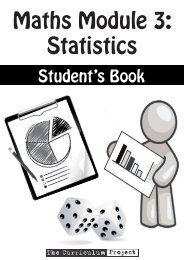Teacher's Guide - The Curriculum Project
Teacher's Guide - The Curriculum Project
Teacher's Guide - The Curriculum Project
- No tags were found...
You also want an ePaper? Increase the reach of your titles
YUMPU automatically turns print PDFs into web optimized ePapers that Google loves.
Economic Globalisation (cont’d)Ask students to read the paragraph ‘Economic globalisation and humanrights’. Ask them to write down any words that they don’t know. Elicit thesewords in turn. Ask if they, or other students can guess the meaning (give themsome clues if necessary). If not, give them a dictionary to look it up and tellthe class, or tell them yourself.<strong>The</strong> Yadana Gas PipelinePre-teach:extrajudicial (adj):not authorised by law.extortion (noun): illegally taking a person’s property by force.violation (noun): an action against the law.logging (noun): cutting down trees.Ask students to read through the text. Give them 5-10 minutes. <strong>The</strong>y shouldwrite down any words that they don’t know. Elicit any words that studentsdon’t know. Ask if they can guess the meaning. If not, give them a dictionaryto look it up and tell the class, or tell them yourself.On Your Own1. Write the following comprehension questions (but NOT the answers!) onthe board:Discussiona. What kind of things have dramatically increased since the pipeline was started?Answer: Extrajudicial killings, torture, rape and extortion by pipeline security forces havedramatically increased since the pipeline was started.b. What has the arrival of many soldiers to this region caused?Answer: <strong>The</strong> arrival of many soldiers to this region has caused an increase in illegal huntingand logging.c. What three human rights violations have villagers living near the pipeline route suffered?Answer: Forced labour, forced portering and forced relocation.d. What did Total pay the Burmese Army to do?Total paid the Burmese Army to provide security for the pipeline.Give the students about 15-20 minutes to write their answers. <strong>The</strong>n put theminto pairs and get them to compare answers. Do they have the same ones?If not, why not? Finally, elicit answers from individual students for each questionand check agreement with the rest of the class.Ask students whether they have any questions about the text on the YadanaGas Pipeline.2. What do you think are the best ways of trying to stop businesses andgovernments benefiting from human rights abuses in other countries? Putstudents into group of 3-5 and get them to think about the question andwrite down their ideas. <strong>The</strong>n elicit one idea from each group in turn and writeit on the board. Discuss whether these ideas would be effective.<strong>The</strong> <strong>Curriculum</strong> <strong>Project</strong> ECONOMICS: an introduction - Teacher’s <strong>Guide</strong>71


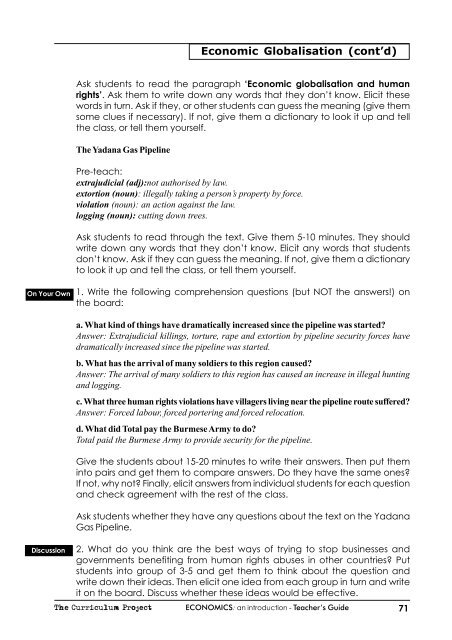
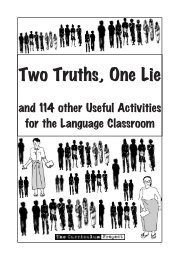
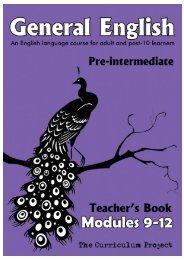







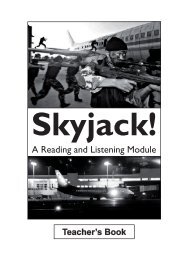
![[Eng] Nov 2012 DRAFT - The Curriculum Project](https://img.yumpu.com/45590859/1/184x260/eng-nov-2012-draft-the-curriculum-project.jpg?quality=85)


